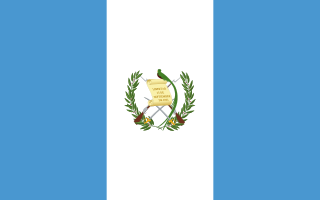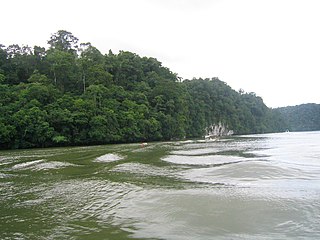
The Texas Medical Center (TMC) is a 2.1-square-mile (5.4 km2) medical district and neighborhood in south-central Houston, Texas, immediately south of the Museum District and west of Texas State Highway 288. Over sixty medical institutions, largely concentrated in a triangular area between Brays Bayou, Rice University, and Hermann Park, are members of the Texas Medical Center Corporation—a non-profit umbrella organization—which constitutes the largest medical complex in the world. The TMC has an extremely high density of clinical facilities for patient care, basic science, and translational research.
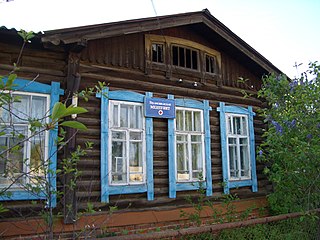
A clinic is a healthcare facility that is primarily focused on the care of outpatients. Clinics can be privately operated or publicly managed and funded. They typically cover the primary healthcare needs of populations in local communities, in contrast to larger hospitals which offer specialised treatments and admit inpatients for overnight stays.

The Cleveland Clinic is an American academic medical center based in Cleveland, Ohio. Owned and operated by the Cleveland Clinic Foundation, an Ohio nonprofit corporation established in 1921, it runs a 170-acre campus in Cleveland, as well as 10 regional hospitals and 19 family health centers in north-east Ohio, and hospitals in Florida and Nevada. Tomislav Mihaljevic is the president and CEO.

Copán Ruinas is a municipality in the Honduran department of Copán. The town, located close to the Guatemalan border, is a major gateway for tourists traveling to the Pre-Columbian ruins of Copán. The Copán ruins house a UN World Heritage site and are renowned for the hieroglyphic staircase, stellae, and museum.
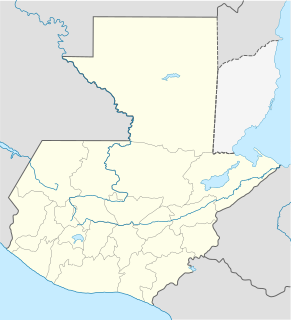
San Andrés Itzapa is a municipality of Chimaltenango, Guatemala. San Andrés Itzapa is in the eastern region of Chimaltenango, while the district capital lies to the north, Acatenango lies to the south and to the east is Parramos. The city occupies an area of 90 square kilometres, with a total of 31,956 inhabitants, who are called Itzapecos.
An abortion fund is a non-profit organization that provides financing for abortions to indigent women who cannot afford the fees. Abortion funds are widespread in countries like the United States of America where there is no national healthcare plan and where health insurance policies may not cover abortions.
The healthcare reform in China refers to the previous and ongoing healthcare system transition in modern China. China's government, specifically the National Health and Family Planning Commission, plays a leading role in these reforms. Reforms focus on establishing public medical insurance systems and enhancing public healthcare providers, the main component in China's healthcare system. In urban and rural areas, three government medical insurance system, Urban Residents Basic Medical Insurance, Urban Employee Basic Medical Insurance and New Rural Co-operative Medical Scheme cover almost everyone. Various public healthcare facilities, including county or city hospitals, community health centers, township health centers, were founded to serve diverse needs. Current and future reforms are outlined in Healthy China 2030.
The Cambodia Project (CPI) is a nonprofit organization whose mission is to develop secondary education opportunities for underserved children in rural Cambodia. The Cambodia Project, Inc. is a 501(c)(3) nonprofit organization recognized under the Internal Revenue Code of the United States, Public Charity Status 170(b)(1)(A)(vi).
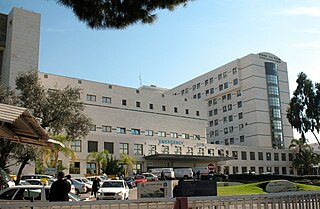
Healthcare in Israel is universal and participation in a medical insurance plan is compulsory. All Israeli residents are entitled to basic health care as a fundamental right. The Israeli healthcare system is based on the National Health Insurance Law of 1995, which mandates all citizens resident in the country to join one of four official health insurance organizations, known as Kupat Holim which are run as not-for-profit organizations and are prohibited by law from denying any Israeli resident membership. Israelis can increase their medical coverage and improve their options by purchasing private health insurance. In a survey of 48 countries in 2013, Israel's health system was ranked fourth in the world in terms of efficiency, and in 2014 it ranked seventh out of 51. In 2015, Israel was ranked sixth-healthiest country in the world by Bloomberg rankings and ranked eighth in terms of life expectancy.

St Luke's Hospital is a community hospital in Singapore that provides professional healthcare services. It was named after the patron saint of the medical profession, St Luke. St Luke's Hospital for the Elderly Sick was registered as a voluntary welfare organisation in the Registry of Societies in October 1991. It was renamed as St Luke's hospital in September 2004 to signify the hospital's role as a community hospital while retaining its focus on geriatric care. The idea of setting up community hospital was first mooted by a group of Christian doctors and nurses after a report from the Advisory Council on the Aged in 1988 raised important issues concerning the lack of adequate elderly care facilities in Singapore. A projection of the number of facilities and resources needed to provide adequate healthcare services to Singapore's ageing population in 2030 revealed serious shortfalls. In response to the problem of inadequate healthcare facilities for the elderly, a group of 8 churches and Christian organisations including the Graduate Christian Fellowship and the Singapore Nurses' Christian Fellowship came together to set up St Luke's Hospital for the Elderly Sick. St Luke's Hospital is headed by a board of directors and various committees that oversee the daily operations of the hospital.
An academic health science centre is defined by the Association of Academic Health Centers as: "an educational institution that includes a medical school and at least one allied health professional school and either owns or is affiliated with a teaching hospital or healthcare system". AHSCs are intended to ensure that medical research breakthroughs lead to direct clinical benefits for patients. The organisational structures that comprise an AHSC can take a variety of forms, ranging from simple partnerships to, less frequently, fully integrated organisations with a single management board.

A health facility is, in general, any location where healthcare is provided. Health facilities range from small clinics and doctor's offices to urgent care centers and large hospitals with elaborate emergency rooms and trauma centers. The number and quality of health facilities in a country or region is one common measure of that area's prosperity and quality of life. In many countries, health facilities are regulated to some extent by law; licensing by a regulatory agency is often required before a facility may open for business. Health facilities may be owned and operated by for-profit businesses, non-profit organizations, governments, and in some cases by individuals, with proportions varying by country. See also the recent review paper, which provides a comprehensive classification of health facilities from the location analysis perspective.
The Foundation for International Medical Relief of Children (FIMRC) is a U.S.-based non-profit organization dedicated to providing modern medical care to disadvantaged families worldwide. FIMRC currently conducts medical care clinics or projects in nine countries, including Ecuador, the Philippines, Costa Rica, El Salvador, Dominican Republic, India, Nicaragua, Peru and Uganda.
Citizens Memorial Healthcare (CMH) is a rural healthcare network. CMH provides comprehensive care to the residents of five counties in southwest Missouri. CMH refers to two affiliated corporate entities. Citizens Memorial Hospital District is a Missouri public hospital. Citizens Memorial Health Care Foundation is a 501(c)3 non-profit corporation.
PROJECT C.U.R.E. is the registered trademark of the Benevolent Healthcare Foundation, a 501(c)(3) non-profit, humanitarian relief organization based in Denver, CO. It is one of the largest nonprofit organizations in the world that delivers medical supplies and equipment to developing countries. Its main purpose is to collect and sort donated medical supplies and equipment from manufacturers, hospitals, and surpluses and then distribute the supplies and equipment to developing countries based on a needs assessment of the local hospitals and clinics in those countries.
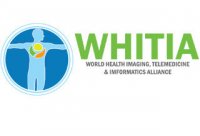
The World Health Imaging, Telemedicine and Informatics Alliance (WHITIA) is a non-profit global health technology and social venture established in 2006 by affiliates of Northwestern University near Chicago, Illinois. WHITIA cultivates high-level strategic relationships with non-governmental organizations, imaging industry innovators and academic institutions in order to integrate and deliver meaningful, sustainable, diagnostic technology to underserved communities worldwide. WHITIA's vision is to facilitate the deployment of thousands of digital medical imaging systems worldwide, providing one billion people with access to diagnostic imaging. WHITIA was formerly known as the World Health Imaging Alliance (WHIA) until it formally expanded its scope in June 2009.
Moringa Project is an Australia-based nonprofit charitable organization committed to the development of sustainable healthcare facilities for underprivileged communities. Moringa Project's current campaign is the development of a sustainable clinic in Jharkhand, India.

The University Neuropsychiatric Institute (UNI), located in University of Utah Research Park in Salt Lake City, is a 120-bed mental health and substance abuse treatment institute for psychiatric treatment. They provide inpatient, day treatment, intensive outpatient and outpatient services for children, adolescents and adults.

Healthcare in Belize is provided through both public and private healthcare systems. The Ministry of Health (MoH) is the government agency responsible for overseeing the entire health sector and is also the largest provider of public health services in Belize. The MoH offers affordable care to a majority of Belizeans with a strong focus on providing quality healthcare through a range of public programs and institutions.

Healthcare in Azerbaijan is provided by public and private healthcare institutions and regulated through the Ministry of Healthcare.
